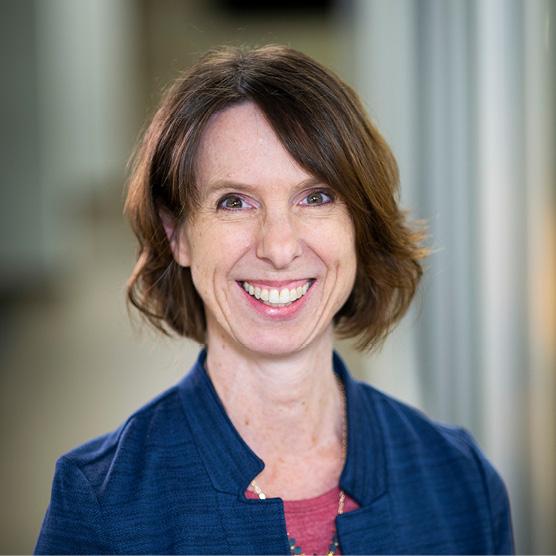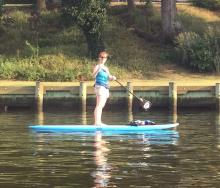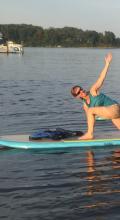
Our Happiness and Wellness Initiative shares "Some Good News" from the SPH and our extended community. You can submit your own good news by email to: happyandwell@umd.edu.
This story was written by Nina Branwell '23.

Happiness is an emotional state of being that is characterized by positive feelings like joy and satisfaction. As part of the human experience, people seek to understand what it means to be happy and what that looks like in reality? The truth is, it's somewhat subjective and happiness differs from person to person. The experience someone may get from one activity may not be the same as someone else. And a coexisting truth is there is science behind happiness that offers understanding into the roots of experiences and practices that support a happy and fulfilling life.
Robin Puett, a professor in applied environmental health, started researching happiness 12 years ago and has now developed a class at the University of Maryland School of Public Health to try to answer these questions about happiness for each individual person.
Robin says for her, "happiness is made up of gratitude, space and downtime in order to see the world at large.”
Robin first realized the ways that being outdoors in nature improved her mood, and as an environmental scientist, set out to discover if there was a trend.
Working with kinesiologists, she asked the question if there was a difference in mood when you exercise in the gym versus when you exercise in nature. The research showed that there was a difference, like the one Robin felt.
This first study was one of many that led Robin down the path of investigating happiness. After developing an undergraduate class, SPHL291: Does Science Support Nontraditional Healing Practices? for the last two years, Robin finally was able to put her research into public health practice. The course is offered every semester and may even fill a general education requirement.
Many of the course assignments are qualitative. Robin has the students try different types of practices and measure their happiness. One assignment features a long-term study where students build a schedule of practices measuring the time it takes to do the activity, the effect it has on their mood and how they choose to measure their happiness.
“Everyone has something that works for them, they just need to find it!”
Some of these practices are considered "integrated health," where the brain and body are connected. The class discusses the history and culture of each practice and how each is known to help the individual using them. These include aromatherapy, acupuncture and yoga.
Robin sees her class as a way for her to also share in the experience with her students of gauging her own happiness. Actively participating in the qualitative studies, she gives her students a glimpse into her own life and finds time to use the methods she researches and teaches.
“I hope my class is impacted by their evaluations and journals, finding a practice and speaking their truth,” radiated Robin.
Check out some sample tips and activities from the SPHL291 course to support happiness:
Some feel-good tips for happiness:
- Find time to engage in the activity of choice when you need it most by allowing it to be a part of a regular activity you already engage in
- Pull out of thinking and feel the physical around you; focus on touch, sight, smell, feeling
- Find a quiet place
Some happiness activities:
- Exercise
- Mindfulness/ Meditation
- Exposure to Nature
- Taking a Break

